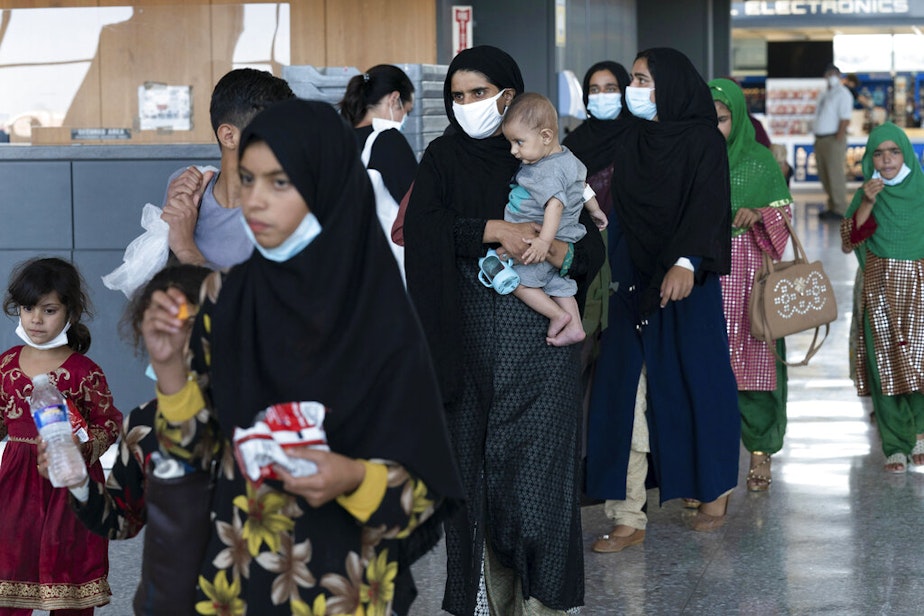One year later, Afghan refugees in WA still need support to put down roots

This week marks the one year anniversary of the Taliban’s takeover of Afghanistan, following the U.S.’s military withdrawal.
Life has changed for most Afghans, including those who fled the country with their families through refugee resettlement programs.
Washington state has been one of the top destinations for Afghan refugees, after Texas and California.
Imraan Siddiqi, the executive director of the Council on American-Islamic Relations Washington (CAIR-WA) talked to Soundside host Libby Denkmann about what the resettlement process looks like in Washington state, one year later.
Siddiqi described the bustle that ensued immediately following news of the Taliban taking power in Afghanistan.
"We started getting calls regarding people who had connections to Washington state who were fearing for their lives, and they were trying to get back to Washington State," he said. "And so our attorney at the time started helping in the limited ways that we could to try and get people aboard some of these evacuation flights. And it was just chaos. We were hearing horror stories where families were being separated."
Sponsored
Siddiqi said the situation prompted CAIR-WA to hire two full-time immigration attorneys, as well as other immigration staff, to increase the amount of legal assistance the organization could provide to refugees.
Approximately 76,000 Afghans entered the U.S. in 2021 on humanitarian parole, a type of temporary immigration status that protects people from deportation for one to two years as they seek a more permanent status. Siddiqi said that access to stable housing is key to getting refugees settled long-term.
"I think that's number one," he said. "People need those roots where they can settle down, get their families situated — if they have children, get into the school systems and get their lives off the ground."
Siddiqi added that compared to Ukrainian refugees, many Afghan refugees have experienced slower processing times when it comes to gaining humanitarian parole status.
"That's one of the issues that some of our immigration attorneys have pointed out, as well," he said. "So there have been a lot of denials in terms of the humanitarian parole channel. So then what we're seeing is that applying for asylum for these families is going to be the sort of the key route that we're going down."
Sponsored
Siddiqi also spoke to the broader biases often faced by people who flee their homelands in search of asylum.
"I think a lot of times when we speak about refugees, they're only spoken of as a political football or in two dimensional terms, where you don't see them as true human beings, people who had ancestries, and lives, and families, and professions that they've had for years, and years, and years," he said.
Looking ahead, Siddiqi said the passage of the bipartisan Afghan Adjustment Act by Congress will be critical for improving the resettlement process for Afghan evacuees. The act, which is currently moving through the House and the Senate, would establish a pathway to U.S. citizenship and expand the access to Special Immigrant Visas for Afghan refugees.





